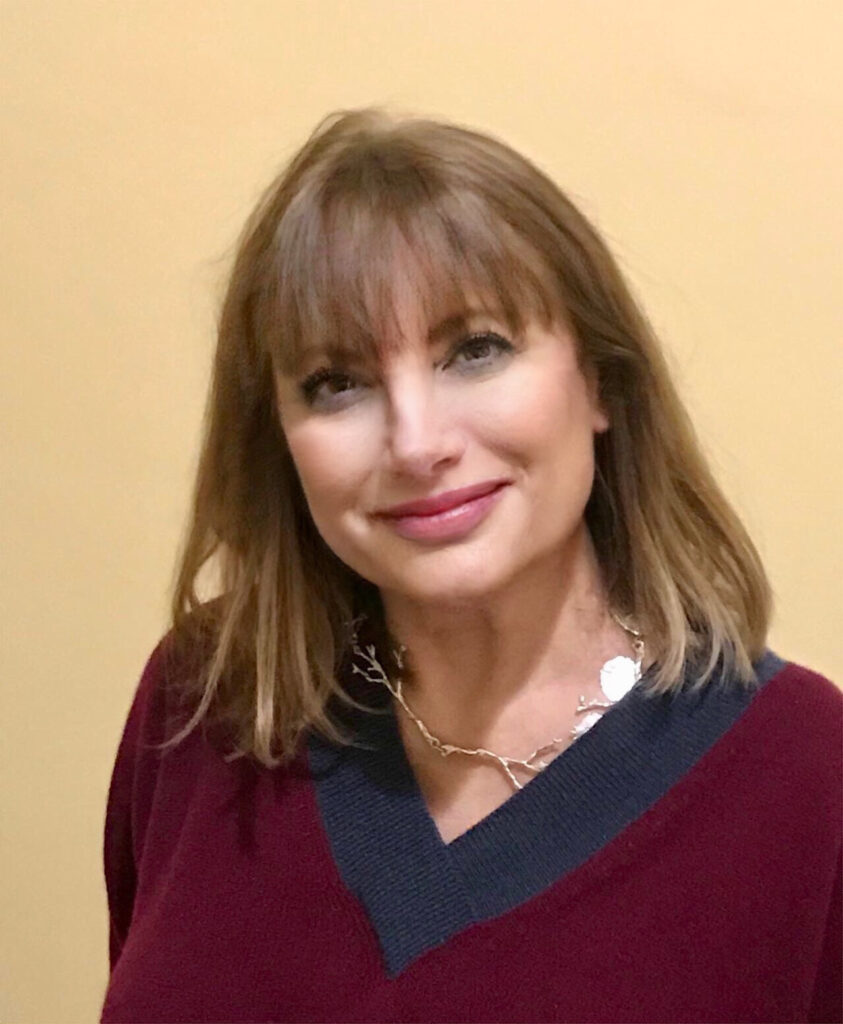Share page
Video resource pack: Grief Therapy – The Masterclasses Video Resource Bundle

Video resource pack: Grief Therapy – The Masterclasses Video Resource Bundle
This video resource pack includes:
-
Therapy Session Masterclass (TSM) Series: Working with the Pain of Loss (Dr Phyllis Kosminsky & Dr Jan McGregor Hepburn)
-
Therapy Session Masterclass (TSM) Series: Working Together: A Suicide Loss Survivor and Her Grief Therapist (Dr John R Jordan, Rebecca Ladd & Dr Jan McGregor Hepburn)
Price for resource pack: £105 instead of the regular price of £130 (a saving of £25)
Video course packs, including all notes are available immediately on booking. The access links are part of your ticket. Online video access remains available for 1 year from the date you receive the video course.
For more information on ticket types and order processing times please click here
There is no known commercial support for this programme.
$161.93 $130.79

Receive a 5% discount if you buy more than one ticket for one course. Tell a friend!
Course Credits
Speaker(s)
Course length in hours
Full course information
Often, we, as therapists are called upon to deal with bereavement, where a client has unexpectedly lost a loved one, leaving them with a markedly reduced ability to function, a heightened propensity for depression, guilt, panic and an overwhelming lack of agency / control.
This video resource pack contains two complete workshops (CPD hours / CE credits: 6) that cover:
Part 1:
At this seminar, Dr Kosminsky, acclaimed author of Attachment informed grief therapy: The clinician’s guide to foundations and applications, uses video client vignettes to address the following questions:
- How do we normalize grief while duly acknowledging the pain of the bereaved individual?
- Grief is painful, but it is not an illness. How do we differentiate normal grief from what is considered complicated or prolonged grief disorder?
- A grieving client often struggles with two stressors: loss orientated, and restoration orientated. Why is this dual processing of grief difficult for some people and how can we help them?
Course objectives:
- Describe recent developments in bereavement research, in neuroscience and in attachment theory that bear on our understanding of how people adapt to loss
- Discuss the practical application of Attachment Theory in providing bereavement support to individuals with attachment related grief complications
- Discuss specific techniques for helping bereaved clients manage emotion, modify cognitions that impede healing, and adapt to changes brought about by significant loss
Part 2:
The loss of a child to suicide can be devastating, and healing sometimes requires the support of a skilled mental health professional. At this interactive webinar, a mother who lost her young adult son to suicide and her grief therapist, with whom she worked for several years, will together highlight the journey through her mourning process.
Dr John Jordan, acclaimed author of Attachment informed grief therapy: The clinician’s guide to foundations and applications and Grief after suicide: Understanding the consequences and caring for the survivors, will briefly provide a framework for understanding the therapeutic tasks at hand, and the client will describe in her own words (through dialogue and video recordings), what was helpful (and not helpful) about the therapy process. She will also discuss some of the changes in her grief that occurred over the course of her sessions.
Course objectives:
- Identify aspects of grief that are different and / or more intense after a suicide
- Better understand the experience of a person bereaved by suicide as a client in grief therapy
- Describe the role of the therapeutic alliance in working with suicide loss survivors
Both seminars are part of our newly launched Therapy Session Masterclass (TSM) Series. “What would you have said to the client in this situation?” is a question that delegates often ask the speaker when attending training sessions hosted at nscience. While, as therapists, we can learn a lot from exposition and case illustrations, our learning can be significantly enhanced if we were to have the opportunity to watch senior clinicians and experts in their therapy sessions with clients – we can observe how they manage the narrative, how they respond to complex situations, what overall approach they follow and their individual format for therapeutic interactions.
With this approach in mind, we’ve launched the Therapy Session Masterclass (TSM) Series – a regular programme of evening sessions (each of which can be individually attended as a stand-alone event), moderated and led by Dr Jan McGregor Hepburn, where we are inviting leading experts in Psychotherapy & Counselling – to let us observe them in clinical settings.
What's included in this course
- Presented by world-class speaker(s)
- Handouts and video recording
- 6 hrs of professionally produced lessons
- 1 year access to video recorded version
- CPD / CE Certificate
- Join from anywhere in the world
Part 1:
At this seminar, Dr Kosminsky, acclaimed author of Attachment informed grief therapy: The clinician’s guide to foundations and applications, uses video client vignettes to address the following questions:
- How do we normalize grief while duly acknowledging the pain of the bereaved individual?
- Grief is painful, but it is not an illness. How do we differentiate normal grief from what is considered complicated or prolonged grief disorder?
- A grieving client often struggles with two stressors: loss orientated, and restoration orientated. Why is this dual processing of grief difficult for some people and how can we help them?
Part 2:
Dr John Jordan, acclaimed author of Attachment informed grief therapy: The clinician’s guide to foundations and applications and Grief after suicide: Understanding the consequences and caring for the survivors, will briefly provide a framework for understanding the therapeutic tasks at hand, and the client will describe in her own words (through dialogue and video recordings), what was helpful (and not helpful) about the therapy process. She will also discuss some of the changes in her grief that occurred over the course of her sessions.
Learning objectives
- Describe recent developments in bereavement research, in neuroscience and in attachment theory that bear on our understanding of how people adapt to loss
- Discuss the practical application of Attachment Theory in providing bereavement support to individuals with attachment related grief complications
- Discuss specific techniques for helping bereaved clients manage emotion, modify cognitions that impede healing, and adapt to changes brought about by significant loss
- Identify aspects of grief that are different and / or more intense after a suicide
- Describe the role of the therapeutic alliance in working with suicide loss survivors
- Discuss the experience of a person bereaved by suicide as a client in grief therapy

Phyllis Kosminsky, PhD, LCSW, is a clinical social worker in private practice in New York and at the Center for Hope in Darien, Connecticut. She has provided individual counselling to hundreds of bereaved individuals and has helped many more in bereavement support groups and in the aftermath of traumatic events. She has conducted trainings for mental health professionals nationally and internationally in the treatment of normal and problematic grief. Her publications include journal articles, book chapters, and the book Getting Back to Life When Grief Won’t Heal (McGraw Hill, 2007). Her book with John R. Jordan, Attachment informed grief therapy: The clinician’s guide to foundations and applications. New York, NY: Routledge was published in 2016.

John R Jordan, Ph.D. John (Jack) Jordan is a licensed psychologist in private practice in Pawtucket, Rhode Island where he has specialized in work with survivors of suicide and other traumatic losses for more than 40 years. He is the Clinical Consultant for the Grief Support Services of the Samaritans in Boston, Massachusetts, and the Professional Advisor to the Loss and Healing Council of the American Foundation for Suicide Prevention (AFSP). He is Co-Chair of the Survivors of Suicide Loss Task Force of the National Action Alliance for Suicide Prevention. Jack is also the co-author of four books: After Suicide Loss: Coping with Your Grief – 2nd Edition (2015 – self-published); Grief After Suicide: Understanding the Consequences and Caring for the Survivors (Routledge, 2011), Devastating Losses: How Parents Cope With the Death of a Child to Suicide or Drugs (Springer, 2012); and Attachment informed grief therapy: The clinician’s guide to foundations and applications. New York, NY: Routledge, 2016.

Rebecca Ladd lives in Rhode Island, near the beach, which is her favorite place to be. She teaches Reading in schools, specializing in Structured Literacy. She is a wife, mother of three, and dog mom. She has too many interests and hobbies and spends all her free time designing and making things. She makes beautiful interiors, bowls, knives, clothing, knitting, jewelry, dot art, and whatever she dreams up from her endless well of creativity. Additionally, she sings classical choral music in serious choirs, and has from the age of five, when she sang in her dad’s church choir. She loves her dogs ridiculously, has many wonderful friends, and comes from a family of 10 children, raised by remarkable and artistic parents. Finally, she loves absurdity and believes in the impossible.
Program outline

nscience UK is approved by the American Psychological Association to sponsor continuing education for psychologists. nscience UK maintains responsibility for this program and its content.
What we offer
250+
500+
webinars delivered
100+
world-class speakers
What our customers say
Similar courses
-
$186.22 – $372.44

Part of the nscience family, nscience publishing house is an independent publisher of practical, clinical-application oriented books covering the practices of psychotherapy, counselling and psychology.

Our easy to search directory website lists the services offered by mental health practitioners throughout the UK.











